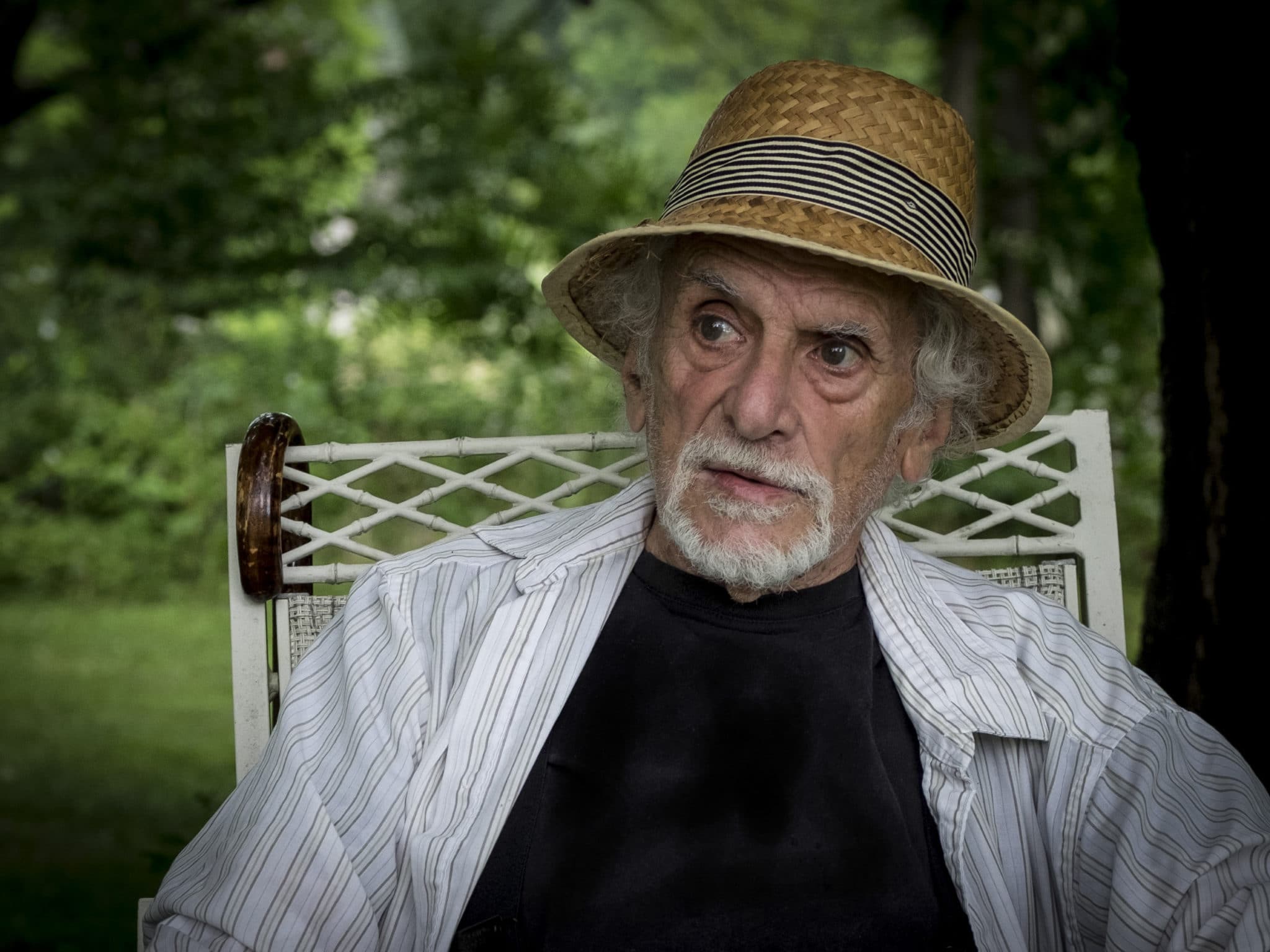 Daniel Klein; Photo by Billy Hughes Studio
Daniel Klein; Photo by Billy Hughes Studio As one might surmise from its title, “Schmegoogle” is not a serious book. Subtitled “Yiddish Words for Modern Times,” it’s a pun-filled compendium that amusingly mashes up modern English with words and phrases from the mama-loshen (mother tongue).
The glossary includes such portmanteaus as cyberschmooze (gossipy online conversation); cashew (a half-Catholic, half-Jew); tsuriasis (a psychogenic skin disorder); schlockbroker (seller of worthless items); and schmegoogle, a person so insignificant that a Google search of their name yields zero results. Each entry includes a definition, usage and Yiddish derivation, and sidebars cover various etymological topics related to the characteristics, sound and evolution of the Yiddish language.
“Yiddish is just inherently funny. It’s so ironic, and there’s more stuff to be ironic about now,” author Daniel Klein said, pointing out that he wrote the book “before the world started to come to an end with the virus.” For Klein, 81, best known for the bestsellers “Plato and a Platypus Walk into a Bar: Understanding Philosophy Through Jokes” (co-written with Thomas Cathcart) and “Travels With Epicurus,” “It was the perfect project for me to do at my age, with my reduced bandwidth,” he wryly told the Journal. “Wordplay has always been part of my life.”
Klein got the idea for the book when his hybrid neologisms like schmegoogle made his friends laugh. “So, I got really stoned and started thinking about more of these,” he said. “I love putting words together. It gives me pleasure and helps me think.”
Klein’s introduction to then-illegal mind-altering substances was at Harvard, where he was a philosophy and theology student in the late 1950s and early 1960s. “Timothy Leary was one of my professors, also Richard Alpert, aka Baba Ram Das. I was young and innocent. I experimented. I went from Manischewitz to psilocybin,” he said.
“Yiddish is just inherently funny. It’s so ironic, and there’s more stuff to be ironic about now.” — Daniel Klein
It comes as no surprise that Klein, still a pot smoker, coined weed-related expressions like meshuga-nug (a marijuana fanatic) and baruch-a-toke (a blessing for a blunt). “We’ve gotten a lot of reaction from weed sites,” he said. ‘They love it.” Other categories include food, insults, social media, health, dating and romance, and feature some terms that already have made it into the vernacular, like Chrismukkah and Black mitzvah, coined by TV’s “The O.C.” and Tiffany Haddish, respectively. Klein estimates that “a good 80-85%” of the entries are his invention.
“I’ve been a punster all my life,” he said, noting that one of his first jobs was writing for a comedy quiz show called “Let’s Play Post Office,” produced by Merv Griffin. “You had to write funny letters from famous people that had double meanings that gave a clue to who the author was,” he said. “It’s where I was first exposed to Yiddish. The staff at Merv Griffin was all Jewish guys from ‘Mad’ magazine. They would pepper everything with Yiddish. I loved how colorful it was, the way it melted in the mouth and all the insults.”
Klein was born in Wilmington, Del., where his parents had moved from Milwaukee for his father’s Manhattan Project job at DuPont. His family was not observant and did not speak Yiddish at home. “But I realized later that my mother knew it,” Klein said. “Her side came from Poland and strongly identified as Jewish and spoke Yiddish. She came from a much more traditional home than my father. His family came over from Hungary in the 19th century. They were assimilated to the point of not identifying. He didn’t even know that Hebrew went from right to left. He was useless at Pesach. But he was a good sport about it.”
Later, religion became a matter of contention between father and son. “I’ve always identified strongly as Jewish and I have a strong spiritual sense. My father got very angry at me when I studied theology. As an atheist, he thought spiritual thinking made you soft in the head,” Klein said.
Klein’s wife is a convert to Judaism and his daughter works for the Harold Grinspoon Foundation, which makes Jewish books available for free to children around the world. He lives in the Berkshires in western Massachusetts, not far from his daughter and 8-year-old granddaughter, “the light of my life.”
Before the COVID-19 pandemic, Klein began work on a medical mystery novel called “Spare Parts,” which he has completed and submitted to his agent. “But if I do another [book] it will be something more like [‘Schmegoogle’] that makes me laugh, my friends laugh,” he said, hoping that his current release provides levity and distraction from the current circumstances. He also hopes that some of his neologisms make it into the vernacular.
“Words slip into English when there’s no other word for it,” he said, offering shlep and the German schadenfreude as examples. “I hope these words slip into the language. I hope I’m in a café in New York and hear one of these expressions. That would be thrilling. I’d love it if people start making up some of their own. I don’t know if it would sell more books, but it would give me pleasure.”
“Schmegoogle” will be available Sept. 1.




















 More news and opinions than at a Shabbat dinner, right in your inbox.
More news and opinions than at a Shabbat dinner, right in your inbox.